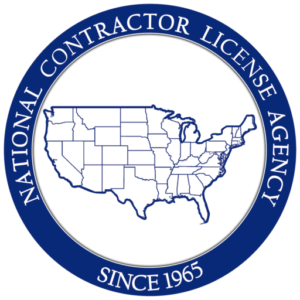
In the dynamic world of contractor licensing, ethics play an indispensable role in shaping the landscape of professional conduct and credibility. Beyond meeting regulatory requirements, a contractor license carries with it a profound responsibility to uphold honesty, integrity, and ethical behavior. Ethical considerations are crucial in fostering a reputable and trustworthy industry. In this article, we delve into the intricate relationship between ethics and contractor licensing, emphasizing the significance of ethical considerations in fostering a reputable and trustworthy industry.
The Foundation of Professionalism:
- Honesty and Transparency: Ethics demand unwavering honesty in all interactions. Contractors are entrusted with clients’ dreams, investments, and safety. Ethical behavior entails transparent communication regarding project costs, timelines, potential challenges, and any deviations from the original plan.
- Integrity in Deliverables: Ethical contractors prioritize delivering quality work that aligns with industry standards and client expectations. Upholding integrity ensures that projects are executed diligently and that shortcuts or compromises are avoided.
- Fair Business Practices: Ethical contractors strive for fairness in business transactions. This encompasses providing accurate estimates, honoring contracts, and treating subcontractors, suppliers, and clients equitably.
Ethical Considerations in Licensing:
- Qualifications and Honesty: Obtaining a contractor license requires a candid assessment of one’s qualifications. Falsifying credentials or exaggerating experience to secure a license undermines the very foundation of ethics. An ethical approach involves accurate representation of skills, experience, and capabilities.
- Regulatory Adherence: Ethical contractors embrace regulatory compliance as a fundamental principle. Moreover, abiding by licensing requirements, safety codes, and industry standards demonstrates a commitment to ethical behavior that safeguards both clients and workers.
- Client Relationships: Ethical behavior extends to nurturing positive client relationships. This entails active listening, clear communication, and a dedication to fulfilling promises. An ethical contractor prioritizes the client’s best interests and aims for client satisfaction.
The Ripple Effect of Ethics:
- Enhanced Reputation: Ethical contractors earn a reputation for reliability, professionalism, and trustworthiness. A solid ethical foundation leads to positive word-of-mouth referrals and repeat business, fostering long-term success.
- Industry Credibility: The collective ethical behavior of contractors shapes the industry’s reputation. Ethical conduct strengthens the credibility of the contracting field, attracting clients who value integrity and professionalism.
- Inspiring the Next Generation: Ethical contractors serve as role models for aspiring professionals, shaping the industry’s future. By exemplifying ethical behavior, they inspire a culture of honesty, accountability, and responsibility.
Ethics form the bedrock upon which the contractor licensing landscape is built. Beyond legal requirements, ethical considerations define the character of the industry and its professionals. Upholding ethics in contractor licensing involves embracing honesty, integrity, and professional conduct throughout every phase of a project. By adhering to ethical principles, contractors not only elevate their own reputation but contribute to the collective growth and positive transformation of the industry. In the intricate dance of contractor licensing, ethics serve as the guiding partner, ensuring that every step taken is marked by integrity, transparency, and a commitment to excellence.
Nick Forchette
Latest posts by Nick Forchette (see all)
- Upholding Integrity: The Crucial Role of Ethics in Contractor Licensing - July 1, 2024
- Top 10 Tips for Passing the Contractor License Exam - June 17, 2023







